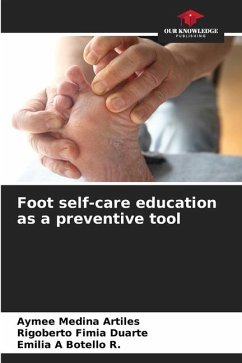
Prevention of Diabetic Foot Ulcers
From Biomechanics to Therapeutic Patient Education
Versandkostenfrei!
Versandfertig in 6-10 Tagen
39,99 €
inkl. MwSt.

PAYBACK Punkte
20 °P sammeln!
Diabetic foot disease is one of the most invalidating long-term complications of diabetes. Given the dramatically increasing prevalence of types 1 and 2 diabetes mellitus worldwide, the medical community must be prepared for the number of diabetic foot ulcers and lower extremity amputations that will follow this "epidemic" of diabetes. In recent years, the standards of diabetic foot care have improved considerably. However, despite the availability of new treatments, techniques, and advances in the medical and surgical care of people with diabetic foot disease, the incidence of lower extremity...
Diabetic foot disease is one of the most invalidating long-term complications of diabetes. Given the dramatically increasing prevalence of types 1 and 2 diabetes mellitus worldwide, the medical community must be prepared for the number of diabetic foot ulcers and lower extremity amputations that will follow this "epidemic" of diabetes. In recent years, the standards of diabetic foot care have improved considerably. However, despite the availability of new treatments, techniques, and advances in the medical and surgical care of people with diabetic foot disease, the incidence of lower extremity amputation in this population is still extremely high. A widening gap exists between our knowledge in the field and the daily experience and outcomes of patients in diabetic foot care centers. The good news is that it is possible to reduce amputation rates by up to 85%. The remaining question is "How do we do it?" This work summarizes the considerable effort made in the field of diabetic foot disease. Special emphasis is given to approaches dealing with the issue of the loss of protective pain sensations and its consequences, in terms of the development of at-risk zones under the foot.














